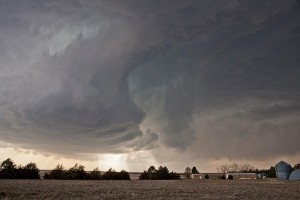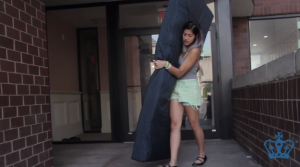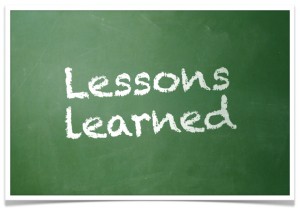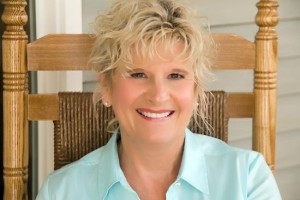**Psst.. Did you know you can highlight any sentence in this post to automatically share it via Twitter or Facebook? Go ahead, give it a try!**

Photo Credit: quintanomedia/Flickr
I live in Hurricane country. Every year, we are reminded by the weather people on the TV to replenish our batteries in our flashlights, to stock up on supplies, especially water and other staples to last a few days, to keep our gas tanks filled and even to buy generators so that we can save the food in our refrigerators.
We are told to prepare for rain storms, wind storms, hurricanes and other natural disasters. Some parts of the country are prone to tornadoes and they are told to have basements “tornado ready” so that they can keep their family safe.
Sometimes, people are told to leave their homes and seek shelter at schools or other places of safety set up by the local authorities.
Most people listen to these warnings and do their best to shelter their families.
When the danger is deemed too close to the target area, families are instructed to “Shelter in Place.” This is where the extra water and food and battery operated radios come in handy.
A few years ago, we were hit by a very big storm and we were without power for a full week. Luckily the cars were full of gas and we had enough water and supplies of food to sustain us. The schools were closed and we ” hunkered down” as we say here in Texas.
This concept of “shelter in place” is one that can serve the abused woman very well.
If you are in a dangerous situation AND you choose to stay with the abuser, there are some things you must be willing to do to keep yourself and your family as safe as you can.
I have a friend in India who works with women who have even been burned by fire from their abusers. Most of them stay with their abuser for the sake of the children, or because they feel that there is no other place for them.
They have learned to turn off the stove if the abuser comes into the kitchen and to be prepared to leave the cooking area.
This is a brilliant strategy. Whatever you may feel about them wanting to stay with the people who burned them is your prerogative but you must be able to see the simple brilliance in their strategy.
This is a great example of shelter in place.
I knew another woman whose husband used to hold guns to her head and threaten to kill her. She blew me off when I told her to take the kids and leave.
She even blew me off when I said she should get rid of all the guns.
A few years ago I heard she finally had to leave because he did indeed fire at her and barely missed.
She called to tell me she should have listened.
I was glad she and her children were finally safe.
Turning off the fire and getting rid of guns are two examples of sheltering in place.
When you decide to stay in the midst of the storm, i.e to stay and live actively with the abuser, you have decided to be your own weather person. You have NO one but yourself to determine your danger. You have to begin to capture all the relevant information so that you can decide what ” shelter in place” means to you.
When does abuse usually occur?
Does it occur when the abuser gets some money and consumes alcohol and gets drunk and out of control?
Is there a time of month that this happens?
What can you do to NOT be around when this occurs?
Who can you call to be a buffer to the abuse?
How can you save the children from further trauma?
Please don’t believe that kids are dumb and don’t know what’s going on.
Kids know and are more aware of danger than you are allowing yourself to believe.
Does the abuser get triggered when family visits?
I had a client who was always more abused when the mother in law visited. The elderly woman would complain constantly to her son that his wife was no good, was a bad cook, was a lousy housekeeper, was a bad daughter in law, etc.
She had to get very brave and use her voice to tell her husband about the behaviors she was no longer going to accept.
Was he angry that she dared call him out on his behavior?
YEP, he was.
When his mother visited and he behaved abhorrently, she left the house for a few days and took her son.
The husband kept calling her cell phone to find out where she was.
He HAD to change his behavior for her to return. Now she was met with a cold silent treatment from him and his mother, but at least they were not shouting at her.
Every person must decide what Sheltering in Place means to their unique situation.
I know of women who finally took full time paying jobs just to get away from all the negativity at home.
They worked while the kids were at school and refused to give up their jobs. The abuser had to find new people to dump his anxieties on.
Did they face abuse after work, of course they did, BUT they had a new circle of friendships at work and were better able to withstand the barrage of insults that came at night.
Are you living in the midst of daily or weekly storms?
What creates the storms?
What can you do to shelter your kids and yourself from the worst of the storms?
If you choose to stay, then it is incumbent upon you to create safety for you and your kids.
Please take a look at this danger assessment and decide what dangers you are in and how you can help yourself.
If you won’t leave, you can still get outreach help from your local shelter or police department.
The most important thing is to be HONEST with yourself and your situation and then make plans for sheltering at home.
I was going to write “good luck” but this is NOT about luck … it is about awareness and respecting the anger and the threats from the abuser.
Respect the anger enough to make shelter plans. Protect your kids.
They need YOU to be the sane adult.
Love and light and weather forecasting …
Indrani
 This college student has vowed to carry a mattress to class every day until her alleged rapist leaves campus.
This college student has vowed to carry a mattress to class every day until her alleged rapist leaves campus.


